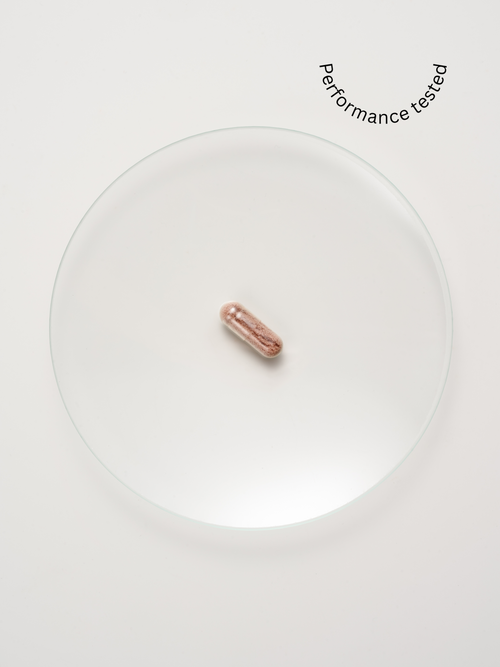
All new skincare products will be skin microbiome-gentle within the next 5 years
Human skin is home to billions of microorganisms, including bacteria, viruses and fungi. Up until recently, it was believed that these microorganisms served little function, and could actually be harmful. However, scientists have discovered that this collection of microorganisms, known as the skin microbiome, plays an integral role in maintaining skin health.[1] The skin’s outer layer, the stratum corneum, should no longer be considered a simple layer of dead cells, but rather a layer supporting a complex living ecosystem that needs to be cared for in a holistic manner.[2]
The skin microbiome forms an essential part of the skin’s barrier function. […] when the balance between commensals and pathogens is disturbed, skin disease or even systemic disease can result.
Although research is ongoing, the evidence collected so far points to the skin microbiome playing a major role in maintaining healthy skin. Similar to the microorganisms in our gut, skin microorganisms have essential roles in protecting against invading pathogens, the education of our immune system and the metabolism of natural products.,, As the largest organ of the human body, skin is colonized by beneficial microorganisms (“commensals”) that serve to protect against the invasion of pathogenic microorganisms. In circumstances where the skin’s barrier function has been disrupted or when the balance between commensals and pathogens is disturbed, skin disease or even systemic disease can result.[1][7][8]
The microbiome and its integral connection to both our overall health and the health of our skin is one of the most promising areas of skincare research right now.
Now that we know that a healthy skin microbiome is fundamental to skin health, what does it mean for skincare?
It is probable that many conventional skincare products that are available today have a negative impact on the skin microbiome. For example, many skincare products contain preservatives in concentrations that are effective for inhibiting microbial growth within the formulation, but are also effective against skin microbiota. Other commonly used skincare ingredients, such as essential oils, fragrances, surfactants, and products with a high pH, can also have an impact on our microbiome. Long term usage of skincare products that contain ingredients that impact the skin microbiome has been shown to alter the microbiome of the skin, as well as its chemistry and physiology.[2][6 ]Evidence suggests that there is a link between imbalances in the skin microbiome and chronic skin diseases including atopic dermatitis (eczema).[7][8]
In 5 years, all new skincare products will be skin microbiome-gentle. […] It will become a new base line.
We are on the verge of a major wave of new products designed to support a healthy microbiome. Between 2016 and 2020, the number of products referencing prebiotics and probiotics dramatically increased. References to the “microbiome” have begun to grow. According to Mintel GNPD, the first half of 2020 saw more launches referencing “microbiome” than all of 2018. The industry has taken note of the growing body of scientific evidence that links a healthy microbiome to optimal skin health. The science is so significant that we believe that in the next five years, all new skincare products entering the market will be gentle to the skin microbiome, and in some cases may even support the diversity of commensals within the microbiome.
The microbiome and its integral connection to both our overall health and the health of our skin is one of the most promising areas of skincare research right now. We believe that creating formulations that are gentle to the skin microbiome will be the forefront of a new generation of skincare products that will help to bolster overall skin health.
Reference
1. Byrd AL, Belkaid Y, Segre JA. The human skin microbiome. Nature Reviews Microbiology. 2018;16(3):143-155. doi:10.1038/nrmicro.2017.157.
2. Crowther JM. Stratum corneum or stratum ecologica?. Int J Cosmet Sci. 2019;41(2):200-201. doi:10.1111/ics.12522
3. Scharschmidt, T. C. & Fischbach, M. A. What lives on our skin: ecology, genomics and therapeutic opportunities of the skin microbiome. Drug Discov. Today Dis. Mech. 10, e83–e89 (2013).
4. Belkaid Y, Segre JA. Dialogue between skin microbiota and immunity. Science. 2014;346(6212):954-959. doi:10.1126/science.1260144
5. Grice, E. A. The intersection of microbiome and host at the skin interface: genomic- and metagenomic-based insights. Genome Res. 25, 1514–1520 (2015).
6. Mcbain AJ, O’Neill CA, Amezquita A, et al.. Consumer Safety Considerations of Skin and Oral Microbiome Perturbation. Clinical Microbiology Reviews. 2019;32(4). doi:10.1128/cmr.00051-19.
7. Paller AS, Kong HH, Seed P, et al.. The microbiome in patients with atopic dermatitis. Journal of Allergy and Clinical Immunology. 2019;143(1):26-35. doi:10.1016/j.jaci.2018.11.015.
8. Nakatsuji T, Chen TH, Two AM, et al. Staphylococcus aureus Exploits Epidermal Barrier Defects in Atopic Dermatitis to Trigger Cytokine Expression. J Invest Dermatol. 2016;136(11):2192-2200. doi:10.1016/j.jid.2016.05.127
This article is the point of view of Tiny Associates Skincare – a new skincare venture launched in Q1 22. Tiny Associates is what the future of skincare could be.
Follow us on Instagram for first-hand news